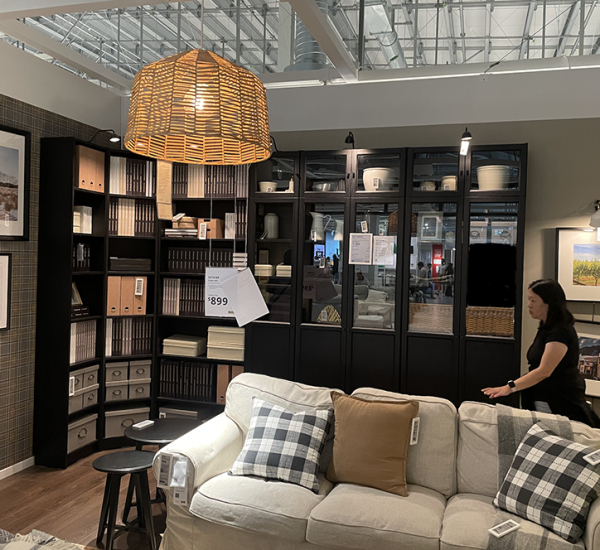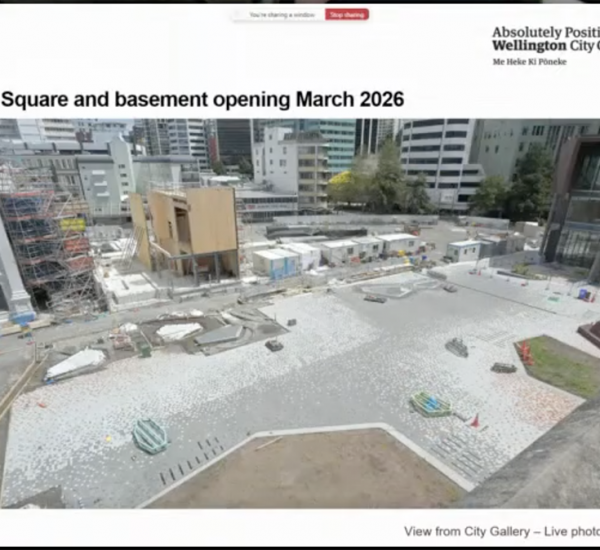I saw something amazing on TV tonight. No, not the X-Factor with only 2 judges, and no, not the Batchelor with a bunch of simpering blondes preening over a well packed 6 pack. And, sadly, no, not a repeat of Casanova on Prime, supposedly set in Venice but actually set in Dubrovnik (the giveaway: how many hills do you have to climb in Venice?!) although that was actually pretty tempting.
No, to me the amazing thing was watching the Parliamentary Channel, live, and seeing our elected representatives waste our tax-payer dollars. That’s mostly to be expected – they are mostly worthless, but last night, for the first time, they almost proved to be worthwhile. Phil Twyford, Labour shadow minister for Housing and Construction, was promoting his bill picked from the ballot, namely the Healthy Homes Amendment Bill. He spoke, carefully, knowledgeably and intelligently, about the need for a better standard for private rented houses, as they are the major causes of damp living conditions, and thereby poor health to poorer families. He quoted BRANZ and EECA and Octago University School of Health. He spoke sense, and made sense. Who could object to that?
Well, National for a start. They put two of their most pathetic nonentities of speakers on the case, namely people we never see or hear of: Steve Doosey Doocey and Brent Hutton Brett Hudson. Or something like that. I’ve forgotten their names already. They were so non impressive, that they had not really even bothered to read the Bill before the debate. But still, they knew they were against it.
Labour, and the Greens, spoke eloquently for it. Metiria Turei and Kevin Hague both implored the Government to put politics aside, and to pass the bill for the sake of the not-so-better-off. And in the End, they voted.
National: against
Labour: for
Greens: for
NZ First: for
Maori: For
United Future: for
and little old David Seymour for the non-descript ACT party: against. Of course, against anything that might restrict the greed of the property owning classes. Without the pathetic ACT hologram, the bill might have passed. But with them him, then….
Numbers were locked 60 to 60.
The motion was lost.
But damn, it is close. Going to be even closer next week after Winston wins….




What were the reasons that National were against it? Sounds like a reasonable proposal to me.
Being a lazy monkey, could you bulletpoint the main outcomes of the proposed bill?
The original bill was terrific as it got thousands of homes warmer and, most importatnly, insulated to keep that heat in, and everyone was behind it. There must have been something with the amendment to keep National from voting for it, as the original was a great investment for those who participated and the country as a whole.
Otherwise – gobsmacked.
National’s argument was essentially that having some kind of minimum standard for rental accommodation would require the owners of houses that don’t currently meet that standard to spend money to upgrade, which would lead to rental increases or houses being withdrawn from the rental market. This is complete nonsense: rents are set by supply and demand, not cost-plus, and as all houses will need to meet the standard it will be essentially neutral on rents. And what does withdrawing from the rental market look like? The landlord moves into the house themselves (and presumably they already live somewhere) or sells it to someone else who either rents it or does the same. National voted against it for entirely political reasons. Shame.
Thanks for the comment Mr Hague – glad that you found the post – and i hope Phil Twyford finds it too. He did a good job. Also gotta hope that Doosey and Hudson find it too, so that they know how crap they were. Not even deserving of a place on the list.
Yes, National’s 3 reasons. They said that it would introduce Risk, it would introduce Increases to Rents, and was without adequate standards, ie landlords would not know what standards they had to meet. All pretty bogus reasons really. If houses have to meet a minimum standard of quality before they are rented out, and the slumlord needs to spend money on doing up the house before it is rented out, then is that not a good thing? Yes, there will be some pressure on the landlord to want to put the rent up to help pay off the investment, but as Kevin Hague says, the laws of supply and demand will dictate that the rents will stay essentially the same. The value invested will be amortized over a slightly longer period of time.
I’m going to leave you with a big quote from Phil Twyford, quoted from the unconfirmed transcripts of Hansard from last night, where he rebuts the arguments:
PHIL TWYFORD (Labour—Te Atatū): Let me address the three objections that I heard from the members opposite. The first is that somehow my bill would result in the unintended consequence of putting housing supply at risk and causing large numbers of rental properties to suddenly no longer be able to be rented. Well, if the members opposite had actually taken the trouble to read the bill they would understand that there is a 5-year phase-in period. Every time a new tenancy agreement is signed, a landlord is required to meet the new prescribed standards. On average a tenancy agreement lasts 15 months, so over that period of 5 years it is easy to see—I think most normal people would understand—that all of the rental properties would then be brought up to scratch.
The second objection I heard from members opposite was that somehow this bill was going to result in rents going up. I ask those members to think about this. The estimated cost of retrofitting a standard three-bedroom New Zealand home with heat pumps and insulation would cost about $5,000, according to the experts. That is a $5,000 cost that would have a $15-year lifetime. The median rent in New Zealand is about $360 a week, so that rental property, a median New Zealand rental property, would generate a gross revenue stream over those 15 years of more than $280,000. So that is a $5,000 outlay to bring the house up to minimum standards, to ensure it is not a health hazard for the people living in it, compared to a gross revenue stream, over the same time period, of more than $280,000. On top of that we all know that what sets rents is supply and demand. Over the last decade rents have been relatively static in most New Zealand markets because there is a decent supply of rental properties. So supply and demand is going to mean—
Brett Hudson: Rents are going to go up.
PHIL TWYFORD: Rents will not necessarily go up, and the member cannot predict that with any confidence. It is not at all true to suggest that this bill will put rents up. Government members also try to say that the bill has unclear standards, but what the bill says is that the Energy Efficiency and Conservation Authority will be mandated to set standards, taking into account the economic and social reality of the day, and it will be required to update those standards regularly to ensure that they have a positive effect. So the arguments put up by the Government members simply do not stack up. So why do National members oppose this bill? I think that Pattrick Smellie, the journalist, had a very interesting theory about why National does not support this bill. What he said was that National’s electoral base tends to include large numbers of small, non-professional landlords, and National members believe it would be politically unpalatable for them to be associated with regulating landlords. What the members opposite seem to be completely oblivious to is that the New Zealand Property Investors Federation has said that this bill is a sensible and pragmatic measure. It supports it. So what is National doing by voting against this bill? It is standing on the side of the worst, bottom-of-the-barrel, ratbag landlords, who are content to compete against other landlords by renting out slums—cold damp housing—that are not fit for people to live in. National stands with those people. Labour and the Opposition parties on this side of the House stand with professional landlords who want to rent out good quality houses. We stand on the side of the one-third of New Zealanders who rent. One third of the New Zealand people live in rental properties. They need warm, dry homes for their kids to grow up in, but National members do not understand that. They are happy to stand on the side of slum landlords and against ordinary New Zealanders who want their kids to grow up in warm, dry homes.
Not trying to pick in holes in the admirable Phil Twyford’s argument, but according to the latest census stats, home ownership is about 50% (49.8% if you have to be a stickler), not a third. So renters make up 50%, not 33%. A better point for the ayes there. Poor bloke undersold it! ;)
Also, the median rental is not the most likely one that is going to be in bad shape (i.e. damp, mouldy, unhealthy); it is going to be the very bottom-of-the-heap ones.
Your typical “slumlord” is not going to bothered to spend $5000 (min.) to install a heat pump and insulate. A scenario I can imagine, could be they flick it off to an investor with an eye on certainly upgrading. Now, how does the intial outlay + upgrade $ stack up on a static weekly rent? It doesn’t, so either he/she doesn’t buy it in the first place (after doing the sums, taking into account the requirement to upgrade) OR buys, upgrades, then sets a higher weekly rent to cover the cost.
NO landlord is in the game for a loss. Sure, the accounting jiggery-pokery of “making a paper loss” to offset tax happens, but you can’t magic up $5000 (already subsidised of course!) no matter how good an accountant you have.
Another scenario is that the landlord bullies the renters into staying in the mouldy shitpit, knowing that if they move they will likely face a rent increase to live in healthier digs. Better the shitpit you know (and can afford), than the clean healthy one you can’t – in some circumstances.
And don’t even get me started on the Accomodation Supplement!. If rent increases happen, you can bet that someone in Parliament will start moaning about increasing the level of that, which is nothing but a SUBSIDY to rental owners.
Kudos for Member Hague showing up. He, in my mind, is one of the standouts for the Greens, along with Julie-Anne Genter who REALLY knows her transport. It’s a pity for New Zealand that Brownlee and Joyce are as thick as they come on Transport matters.
Seamonkey – but the point is, that if the slumlord (i love that word, and going to keep using it…) doesn’t have a Warrant of Fitness, they won’t be able to lease it to a tenant, and then they won’t get anything at all. As Mr Hague says, they either need to then occupy it yourself (there’s no compulsion for WOF about your own house, evidently), or sell it and move on. Over time (and yes, a 5 year period will even those things out) it will raise the average quality of the housing stock. The good thing is that it will have a downwards effect (small) on crappy rental properties for sale, as the next buyer will offer $5k less…
Regarding the money, have you not noticed that banks are almost falling over themselves to give money away at present. They’ll happily extend the slumlord a line of credit…
Turkeys don’t vote for Christmas http://www.radiolive.co.nz/MPs-who-own-more-than-one-property/tabid/674/articleID/41364/Default.aspx
Hamish, and also thanks to Duncan Garner!
thanks for the link – great to have that unearthed and available for public view. There are some that stick out a long way – such as Tremain having 20 houses, but then again, he is / was a Real Estate salesman, as was his father. Still, 20 seems excessive. Also amazing is the amount of wealth horded up by other Nats – JohnKey the Honkey we already know as filthy rich, but the others? Nicky Wagner worth over $25 mill? Good grief! And Ian McKelvie, whoever he is, with a huge $68 mill pile! Puts JK’s alleged $13.3m in the shade.
However, to me, that still does not make sense for the Nats to have buried this bill. I would bet that Chris Tremain would not want a single one of those 20 houses to hit the headline under the banner of “Slumlord”. Just not going to happen. He will have had a small fleet of property managers continually ensure they are spick and span and up to some decent insulating standards, to ensure his rent keeps coming in. So, while these Nats may be turkeys, they’re still going to make sure their nests are well feathered by ensuring (as our Glorious Leader would say): a no-risk situation, win-win, going forward, at the end of the day…
“Ian McKelvie, whoever he is, with a huge $68 mill pile” is actually the MP for Rangitikei, a farmer, the former Mayor of Rangitikei, and a member of the Law and Order and Chair of Primary Production select committees.” From his website, it says:
“I was elected as the Member of Parliament for Rangitikei in the 2011 election. My entry into Parliament follows a nine year career in local politics as Mayor of the Manawatu District, as well as careers in agriculture and business. My experience includes directorships in FMG and as Chair of Farmers Mutual Finance, and Special Olympics New Zealand…. we run the family farming business on the edge of the Rangitikei River.
I have particular interests in sustainable agriculture, including the protection of our soil and water for future generations, and sustainable economic development for rural communities. I am a member of the Law and Order and Chair of Primary Production select committees.”
Looking through the comments and having worked on the upgrade of housing stock, I can confirm that it costs more than $5k to insulate and fit heat pump(s) to a standard 3-bed bungalow. I am passionate about healthy housing and the difference it makes to people’s lives. Unfortunately while housing is viewed as a commodity and incentivized as such, warm, safe and secure dwellings will elude those on low incomes. These are the folks who make our cities work.